Analysis: African voters will voice their discontent in major elections in Nigeria and Burkina Faso
by Sean Jacobs*
Ebola dominated the headlines about Africa in 2014, but while the Western media was caught up in hysteria, the key lesson of the outbreak was the dysfunctional state of health infrastructure in West Africa and the lack of a coordinated continental response.
And, a new Cambridge University study suggests, policies imposed by the International Monetary Fund had led African governments to slash spending on the public health system, leaving them unable to hire and train sufficient staff to cope with the crisis.
But the picture wasn’t all gloomy. Nigeria, despite its dysfunction and corruption, impressed the world with a public health response that effectively contained Ebola. African musicians like Salif Keita and Amadou and Mariam released an Ebola song that delivered crucial information about how to prevent infection.
Also Read: Be Careful of the Trap of Deploying Peacekeeping Forces to Gaza
For all the hype and bluster in U.S. media, it was local doctors and medical personnel that bore the brunt of the burden of fighting Ebola in Africa, while more direct medical assistance came from Cuba than from the United States.
Nigeria, which claims to be Africa’s largest democracy and is now also the continent’s largest economy, was more effective in containing Ebola than in coping with the menace of Boko Haram. The extremist group’s abduction of more than 200 schoolgirls in May drew international attention, prompting promises of swift and decisive action by President Goodluck Jonathan.
Most of the girls were never returned, making Jonathan the target of vehement public criticism, but he is still expected to easily win February’s presidential election. Jonathan maintains solid support among Evangelical megachurches (a big factor in Nigerian politics), major media houses and local celebrities, while the weakness of civil society means he faces little opposition.
His election opponent, Muhammedu Buhari, is a former military ruler from the 1980s with little support among Nigeria’s elites. Buhari’s erstwhile support for Sharia rule means he faces strong opposition in the south. (Turnout in the north will be lower because of the Boko Haram threat.)
Also Read: The Forty-Four-Days of Glory: Azerbaijan’s Struggle for Justice and Peace
Africa will see several other notable elections in 2015, beginning with Egypt’s parliamentary poll in March. With the Muslim Brotherhood and its associated political party still banned, any election will be easily won by parties allied with the military and President Abdel Fattah al-Sisi. No surprises are expected, either, in the April election in Sudan, where President Omar Al Bashir has been in power since 1989.
Burkina Faso’s November 2015 election is more significant – it marks the first time in the country’s history that the Burkinabé will get to choose their government. A youth-led uprising forced the dictator Blaise Compaoré to flee the country on Oct. 31, after 27 years in power, and he is reportedly in exile in Morocco.
Although it has no election scheduled, South Africa could unseat President Jacob Zuma next year. Tainted by allegations of corruption, Zuma is increasingly unpopular among the electorate and within his own party, the African National Congress (ANC). Zuma has been ordered by South Africa’s public protector to repay the state for $24 million in unauthorized renovations to a private property in his home province of Kwazulu-Natal.
Meanwhile, the ANC under his stewardship has splintered in the face of challenges from the more left-wing Economic Freedom Front and a trade union-based United Front movement. But Zuma is a canny operator, and it’s not clear that his critics can muster a majority to oust him.
Also Read: Palestine Solidarity Month: A Collective Movement for Al-Aqsa and Palestine’s Freedom
Uganda’s President Yoweri Museveni, who championed his country’s assaults on gay rights, is hoping to make 2015 the year that African leaders withdraw from the International Criminal Court (ICC). Of the 21 open cases before the court, all have Africans defendants. That does not sit well with many African leaders, who ask why Western politicians such as George W. Bush, Dick Cheney and Tony Blair have not been brought to book by the ICC over the invasion of Iraq.
The ICC nevertheless provides an important, if flawed, bulwark against impunity for African leaders. The court’s recent decision to drop charges against Kenyan leader Uhuru Kenyatta could, paradoxically, strengthen the ICC’s legitimacy in African eyes by showing that the outcome of its proceedings is not predetermined.
As University of Florida political scientist Oumar Ba argues, the Kenyatta case may spur a change in prosecutorial strategy, prompting the court to investigate specific human rights abuses in detail before deciding who to level charges against.
The continent gets a break from public health and politics in January when the bi-annual Africa Cup of Nations kicks off, featuring some of the finest players in international soccer—most of whom are based in Europe.
Also Read: Hassan al-Turabi: A Controversial Thinker from Sudan
The tournament will be held in Equatorial Guinea after the original host, Morocco, withdrew over concerns that Western anxiety about Ebola could harm Morocco’s critically important tourism industry.
Soccer enthusiasts will be watching closely to see whether Cote d’Ivoire’s “golden generation” — led by Didier Drogba and the Toure brothers – finally win lift the silverware that has long eluded them, in a tournament that may be their swansong.
Finally, we can’t promise that 2015 will be the year that passes without some public figure referring to Africa as a country. 2014’s offenders include Vice President Joe Biden, House Speaker Nancy Pelosi, aging rocker Steven Tyler, Arsenal manager Arsene Wenger, Australian foreign minister Tanya Plibersek and reporters and local authorities who used three Ebola-infected African countries as stand-ins for the whole continent. Just stop.(T/P009/P3)
Mi’raj Islamic News Agency (MINA)
Also Read: Who Exactly is the RSF Group Shaking Sudan?
*Sean Jacobs, a native of Cape Town, South Africa, holds a Ph.D. in Politics from the University of London and a M.A. in Political Science from Northwestern University. He is currently writing a book on the intersection of mass media, globalization and liberal democracy in post-apartheid South Africa. He is co-editor of Thabo Mbeki’s World: The Politics and Ideology of the South African President (Zed Books, 2002) and Shifting Selves: Post-Apartheid Essays on Mass Media, Culture and Identity (Kwela Books, 2004). His most recent scholarly articles have appeared in Politique Africaine (2006) and Media, Culture, and Society (2007); and has contributed reviews and opeds to The Guardian, The New York Times, Volkskrant, The National and The Nation. Previously he taught African Studies as well as communication studies at the University of Michigan in Ann Arbor. He also worked as a political researcher for the Institute for Democracy in South Africa. Jacobs founded Africa is a Country.
Source: http://america.aljazeera.com/articles/2014/12/25/will-2015-be-a-yearofpoliticalchangeforafrica.html
Also Read: The Two-State Solution (Palestine–Israel) in Historical Perspective





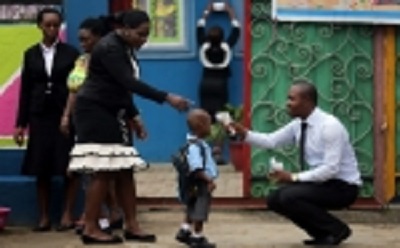






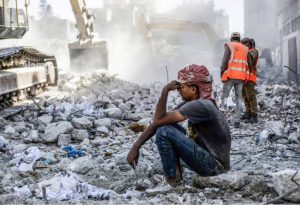



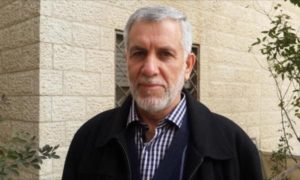
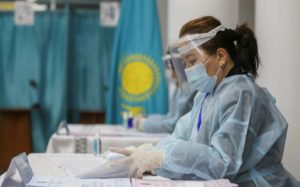
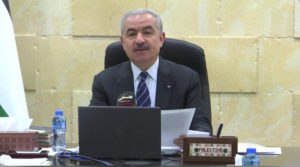
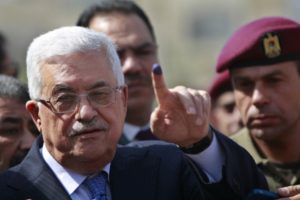
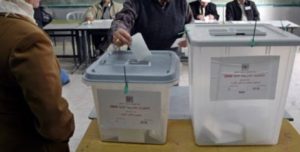
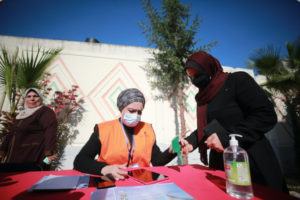












 Mina Indonesia
Mina Indonesia Mina Arabic
Mina Arabic